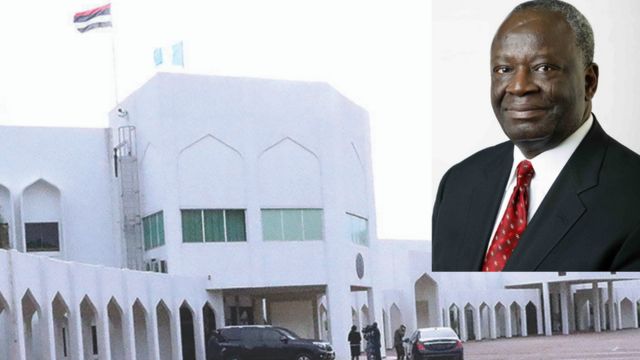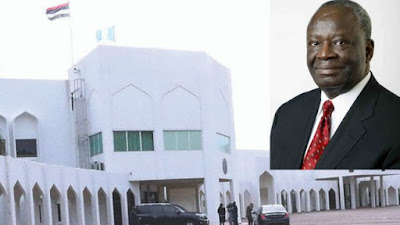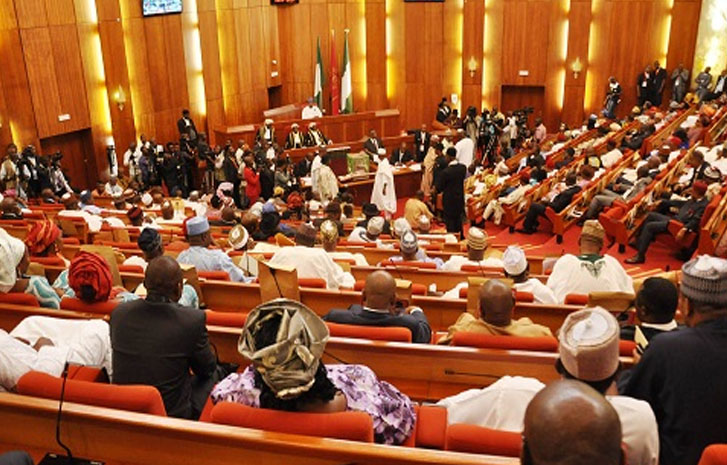Judicial Financial Autonomy:A Way Forward For The Administration Of Justice In Nigeria (2)

By Ebun-Olu Adegboruwa, SAN
It is well over a month that the Judiciary Staff Union of Nigeria, JUSUN, embarked upon their industrial strike action to press home their demand for financial autonomy and independence for the judiciary. I have also been informed that workers of the various houses of assembly of the States are also on strike to demand for financial autonomy for the legislature. It is gratifying that the various levels of government have set up an implementation committee to work with JUSUN for a mutual resolution. Such initiative must necessarily carry along the Nigerian Bar Association and the National Judicial Council, who are major stakeholders in the administration of justice in Nigeria. For good cause, lawyers across the nation have demonstrated commendable solidarity with JUSUN, even though the strike action has affected lawyers in very several ways, especially litigation lawyers. It is a necessary sacrifice that we have all agreed to make for a better tomorrow. Last week, I shared part of the paper presented at the Webinar orgianized by the Gwagwalada Branch of the Nigerian Bar Association. Kindly permit me to continue further on this.
JUDICIAL AUTONOMY AS DECLARED BY THE COURTS
In another judgment in one of the cases filed by Olisa Agbakoba, SAN, the court declared as follows:
(i) that by virtue of section 81(2) and section 84 (1), (2), (3), (4) and 7 of the Constitution of the Federal Republic of Nigeria 1999 the remuneration, salaries, allowances and recurrent expenditures of the judiciary being constitutionally guaranteed charges (or “First Line Charge”) on the Consolidated Revenue Fund of the Federation does not form part of the estimates to be included in the Appropriation Bill as proposed expenditures by the president as is the present practice.
(ii) that by virtue of the constitutional guarantee of independent funding of the judiciary under Section 81(1), (2) and (3) (C) and Section 84 (2),(3), (4) and (7) of the Constitution of the Federal Republic of Nigeria 1999, the National Judicial Council (NJC) ought not to send its annual budget estimates to the Budget Office of the executive arm of government or any other executive authority as is the present practice, but to send the estimates directly to the National Assembly for appropriation.
(iii) that by virtue of Section 81 (3) of the Constitution of the Federal Republic of Nigeria 1999, any amount standing to the credit of the judiciary in the Consolidated Revenue Fund of the Federation ought not to be released to the judiciary in warrants or other means or through the Federal Ministry of Finance, the Budget Office, the Office of the Accountant General of the Federation or any other person or authority in the executive arm as it is the practice at present, but to be paid directly, in whole, to the National Judicial Council (NJC) for disbursement.
(iv) that the continued dependence of the judiciary on the executive arm for its budgeting and funds release is directly responsible for the present state of underfunding of the judiciary, poor and inadequate judicial infrastructure, low morale among judicial personnel, alleged corruption in the judiciary, delays in the administration of justice and judicial services delivery and generally low quality and poor output by the judiciary.
(v) that the present practice on judiciary funding by the defendants which is dependent on the executive arm in budgeting and release of funds is in violation of the Constitution.
JUSTIFICATION FOR JUSUN STRIKE ACTION
Section 287 (3) of the Constitution is very clear on the need for all persons and authorities to give effect to the judgement of the Federal High Court. Once a court has made declarations concerning any subject, the executive is bound to obey them, except in circumstances where, if it is not satisfied with the judgment, it will follow the due process of appealing against it, which is not applicable in this case as there is no appeal against any of the judgments mentioned above.
The steps taken by JUSUN so far are all in accord with the law and should be supported by all lovers of democracy.
THE FEDERAL GOVERNMENT AND JUDICIAL FINANCIAL AUTONOMY
On June 7, 2018, the President assented to the Fourth Alteration Act, which granted financial autonomy to state judiciary and legislature under section 121(3) of the Constitution, which states thus:
“Any amount standing to the credit of the House of Assembly of a state and Judiciary in the Consolidated Revenue Fund shall be paid directly to the said bodies respectively; in the case of the judiciary, such amount shall be paid directly to the heads of the courts concerned.”
In a bid to give teeth to the Fourth Alteration Act, the President inaugurated a special committee on March 22, 2019, known as The Presidential Implementation Committee on the Autonomy of State Legislature and Judiciary, with the Honourable Attorney-General of the Federation as the Chairman. The mandate of the Committee was to ensure the full implementation of the 4thAlteration to the Constitution and thus free these important sectors of our democratic experiment, from the stranglehold of the executive arm.
The judiciary is empowered by the Constitution to entertain and determine disputes between persons and persons or between persons and government or between governments and governments. The conflict margin is more on the executive-judiciary angle because of the obvious and excessive impunity of the executive arm, especially the law enforcement agencies. The general thinking of most Governors is to cage the courts and starve the judiciary of funds, as a means of rendering it ineffective so that lawlessness can thrive unchallenged or where challenged, unchecked. Most Governors are therefore not comfortable with a viable and independent judiciary, which they dread as a veritable tool in the hands of the people, to challenge and overturn all manner of excesses. Through the office of the Attorney-General and Commissioner for Justice of the various States, the executive governors have perfected the style of holding the judiciary captive, starving it of needed fund and infrastructure. So, in most cases, the judiciary is forced to go begging cap in hand, for funding. And assuredly as we all know it, he who pays the piper calls the tune. This was the very ugly scenario before the ‘revolution’ of the 4th Alteration to the Constitution, seeking to free the legislature and the judiciary, from the very firm grip of the executive.
The Presidential Implementation Committee on Autonomy of State Legislature and Judiciary (PICASOLEJ) was consequently inaugurated and charged to set the ball rolling. It held a two-day retreat in Abuja and came up with a 12-point communique, some of the highpoints of which are as follows:
* the 4th Alteration Act has been observed more in the breach than in compliance.
* there are various levels of minimal compliance in various States but all fall short of the expected compliance, as budget performance across 36 States of the federation show that while the least allocations to state judiciary in the past three years was 0.6 per cent of the state budgets, the entire allocation was 4.89 per cent.
* the governors as heads of the Executive Arm of Government should begin full implementation of the financial autonomy granted the legislature and the judiciary.
* they should equally adopt the budgeting model operating at the federal level where the sum due to the judiciary and the legislature are captured as first line charge in the budget laid before and passed by the Legislature.
* the budget proposal of the legislature and judiciary should be defended before the relevant committees of the legislature.
* the total sum, both Capital and Recurrent, approved in the Annual Budget of the state, should be released monthly on a pro–rata basis by the Accountant General of the State, directly to the heads of the legislature and the judiciary, and heads of the Judicial Service Committee or Commission.
* the budgeted sum, Capital and Recurrent, howsoever described, should be released to the Judiciary to be spent by the Judiciary on the projects, programmes and capital development of the Judiciary, including recruitment and training of personnel. And so for the legislature.
* the current practice in some states where appropriated recurrent expenditure due the judiciary and legislature in the budget were released to the judiciary and legislature and the capital components warehoused in the Executive should be abolished.
Taking a cue from the work of this Committee, the Bayelsa State Government, on December 21, 2019, complied with the Fourth Alteration Act by granting financial autonomy to the judiciary and the legislative house in the State.
JUDICIAL FINANCIAL AUTONOMY AND ADMINISTRATION OF JUSTICE
Without any doubt, an independent judiciary is needed for smooth administration of justice, whether to guarantee justice to all manner of people or in the provision of better welfare packages for judges and judicial staff. Thus, where there is no financial autonomy for the judiciary, justice administration suffers. Across the country, from the Magistrate’s Court, to the Federal High Court and even the Supreme Court, the judges are crying neglect, abandonment and lack of independence and autonomy. And it is as if those concerned cannot hear the judges. At the 2019 Annual General Conference of the Nigerian Bar Association held in Lagos, the Chief Justice of Nigeria stirred the hornet’s nest, in his moving speech at the opening ceremony. The CJN did not mince words that the judiciary was under siege, suffers lack of autonomy and was being starved of funds, by the executive arm of government, which was out to muzzle the third arm of the realm. He gave a firm commitment that the judiciary under him would not allow interference or pander to the whims and caprices of the other arms of government.
At that same occasion, there was a controversy as to whether judges were embracing self-imposed timidity or they are being intimidated by the executive arm, which prompted the former Chief Judge of Edo State to stand in defence of the judiciary, wondering why lawyers have failed to defend judges in order to give them the needed impetus to do their jobs without fear or favour. She then wondered how lawyers expect that judges who go cap in hand to beg for money would turn around to openly confront the executive that pays them. It then became clear to all of us at the gathering that the judiciary is in some crisis, as confirmed from the current JUSUN strike action. There is no way a financially controlled judiciary can dispense justice without fear or favour.












 The world was suddenly jolted by the spread of an unknown virus later coded the Coronavirus. It was a moment of despair, confusion and a total shift in lifestyle.
The world was suddenly jolted by the spread of an unknown virus later coded the Coronavirus. It was a moment of despair, confusion and a total shift in lifestyle.






